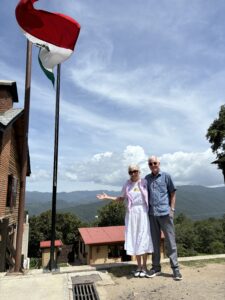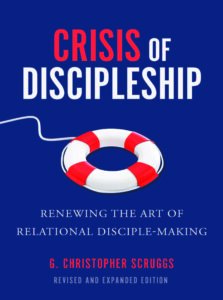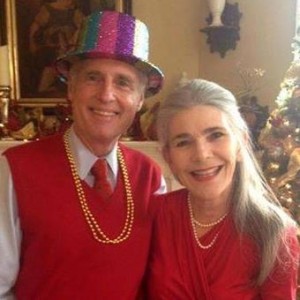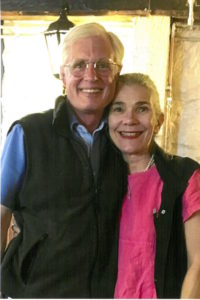Paul’s Second Missionary Journey illustrates the truth that outstanding achievements sometimes have troublesome beginnings. Acts 15 tells the story of the council in Jerusalem, where the early church decided that Gentile believers didn’t need to become Jews to become Christians. In response to the complaints of what are sometimes called the Judaizers, the church sent a letter designed to build unity in the church, concluding:
It seemed good to the Holy Spirit and to us not to burden you with anything beyond the following requirements: You are to abstain from food sacrificed to idols, from blood, from the meat of strangled animals and sexual immorality. You will do well to avoid these things (Acts 15:28-29).
The Jerusalem church then sent a circular letter to all the churches, giving them their wisdom and the council’s decision.
 Paul and Barnabas were at the Jerusalem meeting where the decision was made. They received the thanks of the apostles for the work that they had done and returned to Antioch. Sometime later, Paul suggested they retrace their steps on the first missionary journey to see how the new churches were doing. Paul wanted to follow up to be sure that the churches had received the letter, accepted its contents, and were moving forward peacefully. We know this to be true. In Acts, Luke records the following concerning the mission:
Paul and Barnabas were at the Jerusalem meeting where the decision was made. They received the thanks of the apostles for the work that they had done and returned to Antioch. Sometime later, Paul suggested they retrace their steps on the first missionary journey to see how the new churches were doing. Paul wanted to follow up to be sure that the churches had received the letter, accepted its contents, and were moving forward peacefully. We know this to be true. In Acts, Luke records the following concerning the mission:
As they traveled from town to town, they delivered the decisions reached by the apostles and elders in Jerusalem for the people to obey. So, the churches were strengthened in the faith and grew daily in numbers (Acts 16:4-5).
However, before they left for their mission, a problem arose. During the First Missionary Journey, it appears that John Mark became homesick and returned to Jerusalem early. Paul did not want to take him on this second trip, fearing that he would again desert them. Barnabas, truly the “Son of Encouragement,” felt differently, and there was an argument. In the end, Barnabas took John Mark with him and returned to Cyprus, where he was well-known, and Paul took Silas, a firm believer, to visit the churches in Syria.
Contemporary Christians sometimes consider the early church perfect, without the imperfections we see in the congregations around us. Over and over again, the Acts of the Apostles reveal that this is not true. There were disagreements and personality conflicts in the early church. I’m almost certain that Paul was sometimes difficult to get along with. We can’t expect our churches to be any different.
The passage also reveals that, although the church’s unity is essential, there are times when individuals in conflict or groups in conflict simply need to separate and go their separate ways. This is not a division in the church but a division of responsibility and ministry designed to keep peace. It makes little or no sense to force disagreeing persons and congregations to remain together when the only result is dysfunction, disagreement, debate, and spiritual deterioration on all sides. People should go their separate ways, forgive and forget, and wait for reconciliation. We know there was a reconciliation between Paul and John Mark, for he is with Paul near the end of his ministry.
Timothy Joins the Mission
When they reached Derby, Paul and Silas gained a new helper. Timothy joined the group. His mother was a Jewish, but his father was a Greek. He would be comfortable in both Greek and Jewish culture. He had never been circumcised. To avoid conflict with the Jews, Paul circumcised Timothy and invited him to come along on his mission. This is an important event in the history of the church. Eventually, Timothy will become Paul’s most trusted assistant. In addition, two of the letters in the New Testament are written by Paul to Timothy. Tradition holds that Timothy became a bishop and leader in the early church until his death. Although Paul would not be John Mark’s primary mentor, he was Timothy’s.
Power of a Dream
As with the first missionary journey, this trip was not without problems. Eventually, Paul traveled beyond Galatia and the boundaries of the First Missionary Journey, intending to probe more deeply into Asia. However, when the group tried to turn to the east, they encountered difficulties, which the Bible describes as the Spirit of Jesus preventing them from going further east into Bythinia (16:6-10). Finally, they arrived at Troas, where Paul had a vision or dream in the night. He saw a man from Macedonia asking them to cross over into their territory (v. 9). Therefore, Paul and his companions arranged to go into Macedonia. As a result of this turn of events, Paul’s ministry took him into Europe instead of further into Asia, and the Christianization of Europe had begun. When I preach on this, I sometimes say, “We wouldn’t be here today if Paul hadn’t had that night vision at Troas.”
This is probably a good illustration of the principle that our failures and missteps are sometimes a way for God to take us to where he wanted us to be all along. When a ministry or program does not work out, contemporary Christians and pastors sometimes feel like failures. We think that we have not accomplished the “Will of God.” This is not necessarily true. The opposition and failure we are now experiencing may be the prelude to success.
More Help in Philippi
We know Luke joined Paul around this time because, in Acts 16:11, Luke begins to use the first person plural “we” to describe the mission. Once again, this is an event of great importance. Luke is the author of two New Testament books, the gospel of Luke and the Acts of the Apostles. Without him, we would know substantially less about Jesus and Paul than we know. Educated as a doctor, he writes in excellent Greek, and his books are exceptionally well organized. He begins his two-volume works, Luke and Acts, letting the readers know he has researched his subject and is speaking as a witness and researcher (Luke 1:1-4). Like Timothy, Luke continued to minister to Christians beyond the lifetime of Paul. He represents that second generation that continued to share the gospel after the original apostolic witnesses died.
Eventually, the group arrived at Philippi. In Philippi, they met a woman named Lydia, described as God-fearing who dealt in purple cloth. Since purple cloth was worn only by the elite and on Paul’s day, this would make Lydia a significant person. She invited Paul and the group to come and stay at her home, which must’ve been relatively large to accommodate travelers and their luggage.
Paul’s friendship with Lydia illustrates another critical point about evangelism and one that has been mentioned before in these blogs. When Jesus sent out the apostles on their initial training journey, he sent them two by two. He also asked them to look for people of peace:
When you enter a house, say, “Peace to this house.” If a man of peace is there, your peace will rest on him; if not, it will return to you. Stay in that house, eating and drinking whatever they give you, for the worker deserves his wages (Luke 10:5-7).
Lydia and her husband were people of peace. This chance meeting led her household to become believers and be baptized (Acts 16:15).
Eventually, Paul and Silas faced opposition and were imprisoned in Philippi. Instead of looking for a means of escape, it appears that when an earthquake occurred, Paul and Silas were praying and singing hymns to God and ministering to the other prisoners! (16:28-27). When the quake came, Paul and Silas were in a position to escape, an event that would’ve meant the execution of their jailer. Instead of rushing to freedom, they stayed. As a result, the jailer and his whole household came to believe in Jesus and became part of the Philippian church (16:31-34). Once again, this event is described as one of great joy (v. 35).
Opposition in Thessalonica
By the time Paul reached Thessalonica, his strategy was to reach the population of the Greeks, and Asia was well-developed, as was the predictable response of some who heard the message. Thus, it is recorded:
As was his custom, Paul went into the synagogue, and on three Sabbath days, he reasoned with them from the Scriptures, explaining and proving that the Messiah had to suffer and rise from the dead. “This Jesus I am proclaiming to you is the Messiah,” he said. Some of the Jews were persuaded and joined Paul and Silas, as did a large number of God-fearing Greeks and quite a few prominent women. But other Jews were jealous, so they rounded up some bad characters from the marketplace, formed a mob, and started a riot in the city (Acts 17:2-5).
Expecting human nature to change is a temptation. Falling into this temptation is a constant invitation to delusion and disappointment. The fact is, we can’t expect everyone to agree with us about anything. Anytime someone attempts to change anything for the better, there is and will be opposition. The question is not how to avoid opposition. The question is how to anticipate and deal with it.
Noble Bereans—the Power of the Word
Every pastor loves to preach on Acts 17:10–15. When Paul gets to Berea, he finds the Bereans more inclined to listen to his testimony. They even examine the script daily to decide for themselves whether what Paul is saying is true (v. 11). Many people believed, and Paul did not experience the kind of opposition he experienced in Thessalonica (v. 12). However, no good thing lasts forever The people of Thessalonica found out about Paul’s success in Berea. So they sent people to Berea to cause trouble (v. 13). The result was that Paul had to go to Athens, where he ministered by himself (vv. 14-15).
The Challenges of Ministering to Intellectuals
When Paul arrived in Athens, he waited for Timothy and the others to catch up with him (v. 16). Nevertheless, Paul was not the sort of person to sit around and do nothing. He followed his strategy. He often went to the synagogue and spoke to Jews and the God Fearers among the Gentiles who worshiped there (Acts 17:16-14). He even began ministering in the public marketplace. There, Paul had the opportunity to speak to the intellectual elite of the Roman world. It is most interesting to see how Paul changes his strategy to accommodate his different situation.
To begin with, Paul finds a point of commonality between the Athenians and his gospel. There were statues of many gods standing around the area where Paul debated with the philosophers. Now, these philosophers probably didn’t believe in any of the gods. To find a point of common belief, he pointed out that they had a statue of an “unknown God” (17:23). This is important. The Greek philosophers were well aware that the many Greek gods were mythological. On the other hand, both Plato and Aristotle believed that there was some kind of a God. Paul begins his argument by pointing to this unknown God, this God for whom the philosophers were looking, and saying that God was the god of Israel, who became flesh in Jesus Christ.
Many people today do not believe in the god or religion of their childhood. This is true of Christians, Jews, Muslims, and other world religions. Nevertheless, many of these people are in their hearts searching for the unknown God. Paul’s strategy is as good as when he first used it. We just have to accommodate the change in our civilization from the civilization of ancient Greece.
Paul goes on to describe this God:
The God who made the world and everything in it is the Lord of heaven and earth and does not live in temples built by human hands. And he is not served by human hands, as if he needed anything. Instead, he gives everyone life and breath and everything else. From one man, he made all the nations that they should inhabit the whole earth, and he marked out their appointed times in history and the boundaries of their lands. God did this so that they would seek him and perhaps reach out for him and find him, though he is not far from any one of us. “For in him we live and move and have our being.’ As some of your poets have said, ‘We are his offspring.” Therefore, since we are God’s offspring, we should not think that the divine being is like gold, silver, or stone—an image made by human design and skill. In the past, God overlooked such ignorance, but now he commands everyone everywhere to repent, for he has set a day when he will judge the world with justice by the man he has appointed. He has given proof of this to everyone by raising him from the dead (Acts 17:24-31).
I have quoted this passage at length for a reason. It has been popular in the 20th century to denigrate what is called natural theology. That is to say, it has become unpopular to defend biblical faith based on philosophical arguments that defend the existence of an abstract God. It’s worth noting that that’s precisely what Paul begins by doing. He starts by describing a God that would’ve been readily acceptable to the people of his day. After describing this philosophical God, Paul ends by explaining how this God became incarnate in Jesus Christ and was raised from the dead. In other words, Paul moves from a philosophical argument to biblical faith.
A Rich but Eventually Troubled Church
From Athens, Paul moves to Corinth. In Corinth, he meets two refugees, Priscilla and Aquiles, who had left Rome because of the persecution by the emperor Claudius. Once again, Paul begins by finding a person of peace with whom he could stay and administer. He follows the instructions Jesus gave the disciples when he sent them out. Even before the others arrive, he preaches the gospel in the synagogue. Once his traveling companions joined him, he devoted himself exclusively to preaching and testifying to the Jews that Jesus was the Christ.
Once again, opposition arose. One can imagine that during the conflict, Paul became discouraged. Therefore, one night, the Lord spoke to Paul in a vision, saying, “Do not be afraid; keep on speaking, do not be silent. For I am with you, and no one is going to attack and harm you, because I have many people in this city” (Acts 189-10). Once again, it is natural to be discouraged when conflict arises. It is good to remember that conflict can be one way God accomplishes his purpose.
In Corinth, Paul left the synagogue and went next door to the house of the Titius Justus, a worshiper of God. This man, the synagogue leader, and his household believed in Christ. Paul stayed in Corinth for a year and a half, and the gospel message prospered (v. 11). Once again, this indicates that Paul was following the original instructions of Jesus to stay in one place until the time came to move on. This allowed Paul to build a relatively strong church that could end your conflict before he went on with the rest of his journey.
Conclusion
When we read about Paul’s second missionary journey, we see evidence that he understood Jesus’ teachings. He was even aware of some of the specific ways Jesus had trained the original 12 disciples to be his apostles. He seems to follow the same pattern that Jesus said for ministry. He does not travel alone. He usually travels with others. The only time he is alone is when circumstances demand it.
Paul begins his ministry by reaching out to the Jews of any given community. He preaches in the synagogues until he is no longer able. When he can no longer do so, he leaves and begins a congregation outside the synagogue. The structure of the gospel he is preaching is relatively simple. Jesus is the fulfillment of the Old Testament prophecies of the Messiah of Israel. In Jesus, God acted to restore the human race to fellowship with God. When this fellowship is established, the Holy Spirit is present in a unique way, and new Christians experience joy.
Finally, during the Second Missionary Journey, we see Paul constantly looking for persons of peace, first Lydia, and then Priscilla and Aquila, Titus Justus, Crispus, and others. Paul is under no illusions that he can do the job alone or even together with his missionary partners. He needs people in the local community who fit in with the local community to help him reach as many people as possible. People of peace do not just become Christians. They frequently become apostles themselves, sharing the gospel in a way impossible for an outsider.
Copyright, G. Christopher Scruggs 2024, All Rights Reserved

















